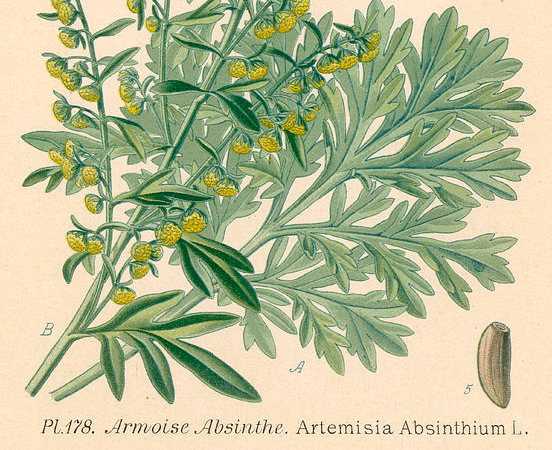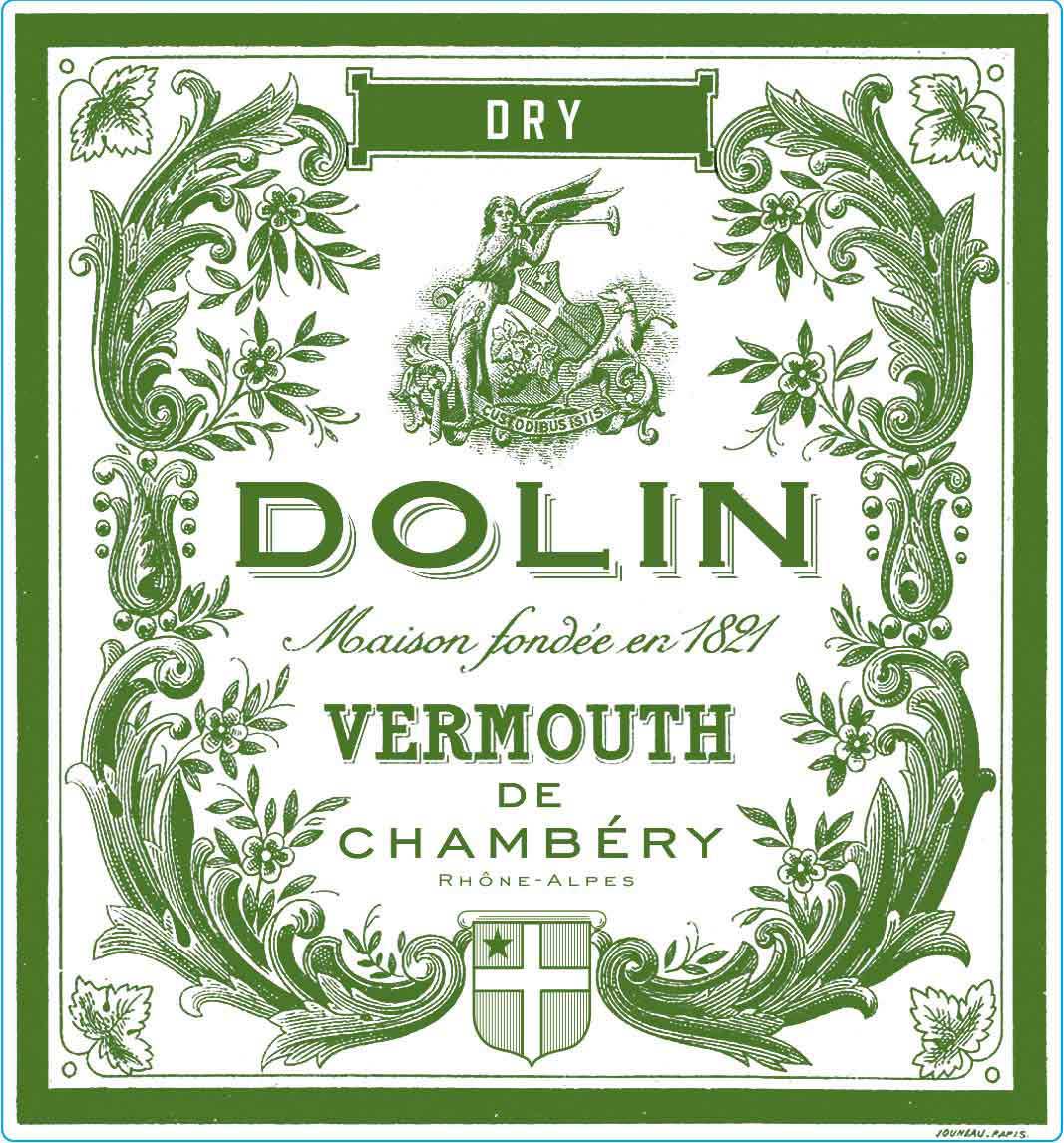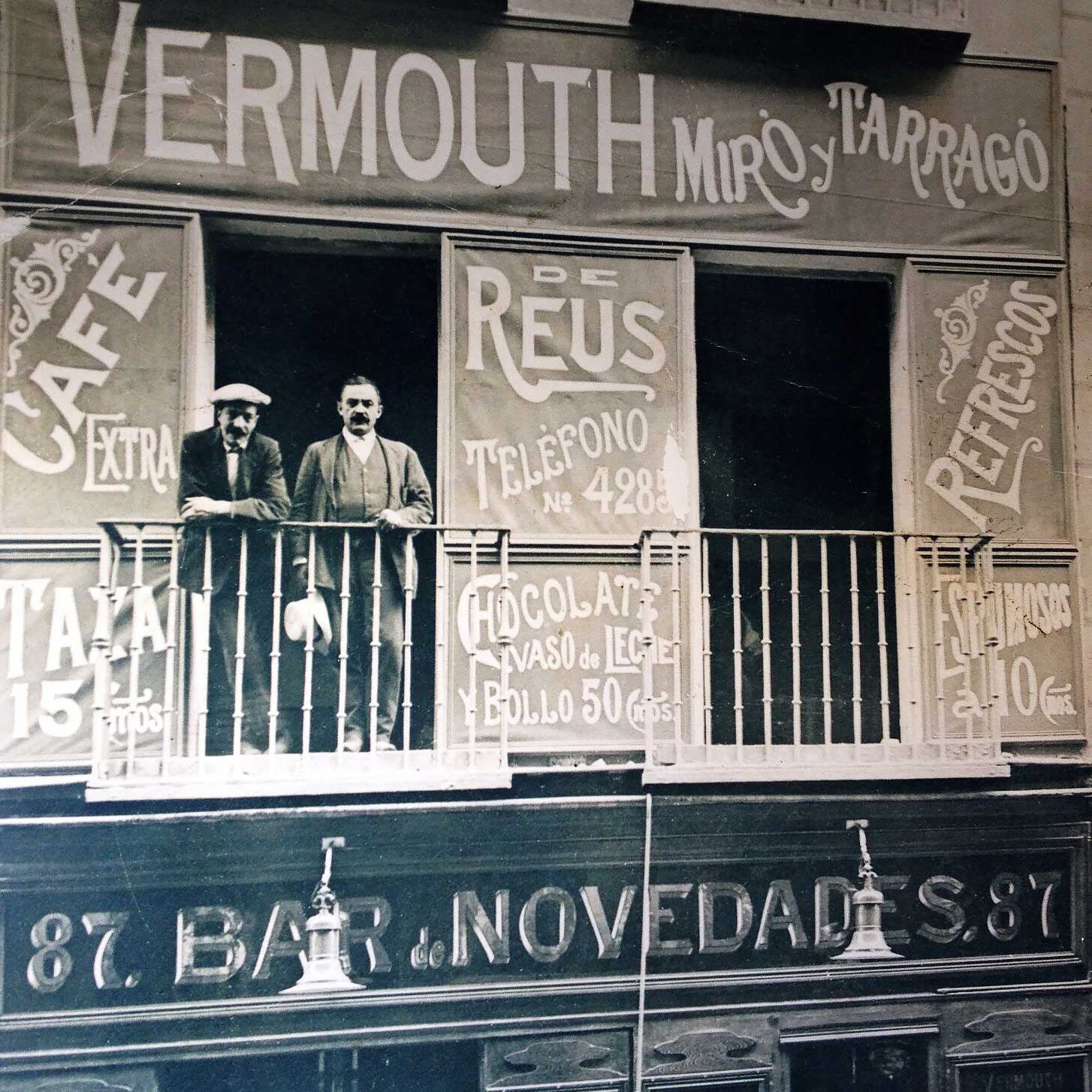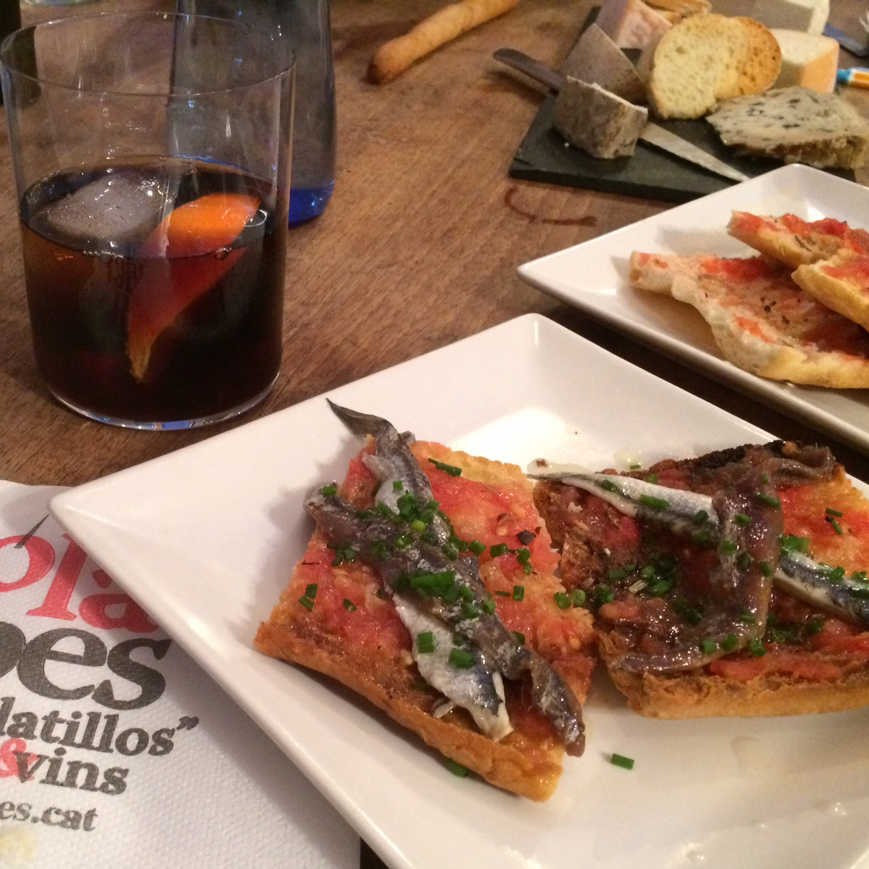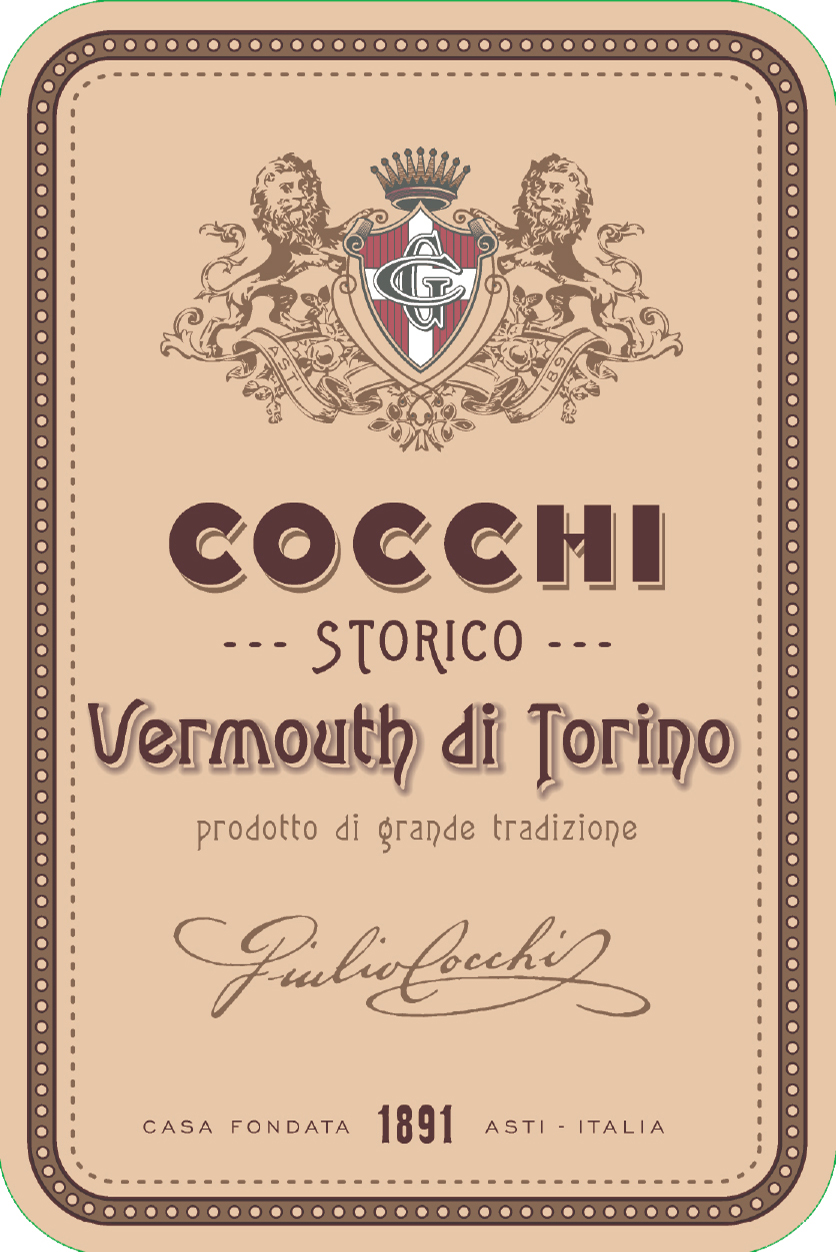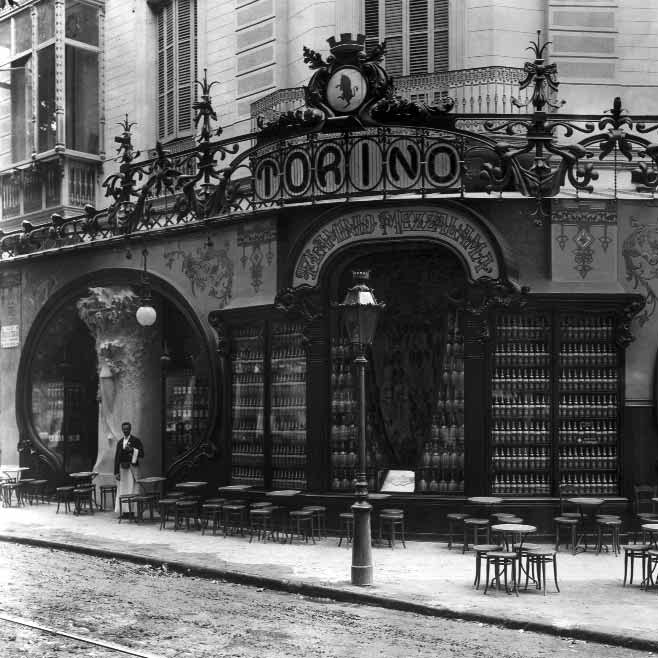Vermouth
In the history of vermouth there are four principal production regions, each with its own distinctive style and varieties. Two of these regions—Vermouth di Torino and Vermouth de Chambéry—have received formal recognition at some point in history. Additionally, Reus's vermouth producers today are banding together to promote the importance of Reus vermouth, both in sustaining the category during phylloxera and as today's aperitif of choice across Spain. Vermouth di Torino is the original “Italian sweet red,” generally rich and sweet. Vermouth de Chambéry is famous for a clean, light and floral style. These qualities made possible (and famous) the Martini at 1:1 gin to dry vermouth. Chambéry is also home to the first clear sweet vermouth, called "blanc." Vermouth de Reus are generally less sweet than Italian varieties, smooth and wormwood forward. Over 95% sold is Red (Rojo/Roig) on ice with olives and potato chips. Marseilles style (e.g., Noilly Original Dry) is historically a lightly aged, oxidative vermouth, made famous in the kitchen for deglazing and cream sauces. The West Coast/Modern styles had an uneven start post-war, but today there are quality products and sometimes unique taste profiles.
Dolin Dry Vermouth de Chambéry
17.5% ABV
Dolin Dry is distinguished by its light, fresh and clean profile, which comes from a delicate wine base and more than thirty Alpine herbs. From its start in 1821, Dolin Vermouth de Chambéry has been the benchmark for fine French Vermouth. Its fresh and elegant nose, subtle and complex palate is the profile that made the 1:1 gin/dry vermouth Martini famous, and so often imitated by others. In the 1930s Chambéry earned France’s only protected designation of origin for Vermouth. Beyond mixed drinks, it is an ideal aperitif or accompaniment to raw shellfish, goat cheese or pesto. In cooking, Dolin Dry adds depth and an herbal character that normal white wine cannot.
Full detailsDolin Blanc Vermouth de Chambéry
16.0% ABV
The sweet, pale ‘Blanc’ variety of vermouth was first created and made famous by Dolin in Chambéry long before Italian producers replicated the style as ‘Bianco’. The Blanc is traditionally served with a sliced strawberry, a splash of soda and a twist. Dolin blanc’s elegance and slight vanilla edge marry beautifully in the ‘new classic’ Blond Negroni. In other cocktails, Dolin Blanc pairs well with blanco tequila or other flavorful clear spirits. It is ideal for infusions of melon or other fruit, and an appetizing accompaniment to a wide variety of cheeses.
Full detailsDolin Rouge Vermouth de Chambéry
16.0% ABV
Dolin Rouge imparts lovely spicy notes amid its light and fresh profile, with a clean finish to complement and not overwhelm a drink’s other components. More than fifty herbs flavor Dolin Rouge; its profile is firm and balanced, without the excessive sweet or lingering aftertastes found in large commercial products. It makes for an exceptional Manhattan that does not bury the tastes of rye or bourbon, even at classic 1:1 proportions. Refreshes a Negroni, too. Dolin Rouge and a twist pairs well with charcuterie or black olives and works perfectly in tomato or meat cookery.
Full detailsComoz Blanc Vermouth de Chambéry
16.0% ABV
Established in 1856, Comoz was the second-oldest of Chambéry vermouth producers after Dolin and the first to produce in a crystal-clear style. (Dolin preceded with a sweet pale, rather than crystal clear, blanc vermouth.) Introduced in 1881, Comoz Vermouth Blanc expressed Claudius Comoz’s selection of wines, plants, and fruits, many from the hills above Chambéry. Comoz came to fame as the essential vermouth in the El Presidente cocktail in Cuba. Less sweet than other vermouth blanc, with notes of stone fruits, alpine flowers, and a deep, resonant undercurrent of wormwood—a profile that marries with whiskey better than any other pale vermouth.
Full detailsChambéryzette Strawberry Aperitif
16.0% ABV
Chambéryzette is a palate-pleasing aperitif that captures the aromatics, acidity and delectable flavors of wild alpine strawberries. It’s exceptionally versatile and adds a vivid, balanced strawberry profile to drinks like a spritz, vodka soda, Martini, or a wild strawberry Negroni. It stands apart from the simplistic and overbearing sugariness of other French strawberry aperitifs and liqueurs. This specialty of Dolin, first created by Rosalie Dolin in 1902, draws its qualities from strawberries of France’s Auvergne-Rhône-Alpes region on a base of Vermouth de Chambéry.
Full detailsTimbal Vermut de Reus Extra Dry
Spain ➜ Catalunya ➜ Vermut de Reus 17.0% ABV
17.0% ABV
This vermouth has a distinctly Catalan character, and embodies many of the savory flavors found in the famed olives of the region. Truly dry—with no added sugar—it is made with herbs sourced from the Pyrenees mountains and citrus of the Mediterranean. Its wine base of Airén (La Mancha) and Macabeo (Penedes) adds a nice minerality. Enjoy neat, with a splash of tonic, or in a 1:1 Martini. The town of Reus (near Tarragona in Catalonia) is the historic epicenter for vermouth production in Spain, where for over a century the producer Miró has set the benchmark for its wormwood-forward style.
Full detailsTimbal Vermut de Reus Sweet Red
Spain ➜ Catalunya ➜ Vermut de Reus 15.0% ABV
15.0% ABV
This well rounded and wormwood-forward sweet red vermouth has earned great admiration. Its easy style is ideal for the Catalan tradition of the ‘vermouth hour’, enjoying a glass on the rocks with olives. Timbal Sweet Red also marries beautifully with rye or bourbon, revealing notes of baking spices. The town of Reus (near to Tarragona in Catalonia) is the historic epicenter for vermouth production in Spain, where for over a century the producer Miró has set the benchmark for its wormwood-forward style.
Full detailsCocchi Vermouth di Torino Extra Dry
Italy ➜ Piemonte ➜ Vermouth di Torino DOP 17.0% ABV
17.0% ABV
Giulio Cocchi brings its unique expression of Piemontese grapes to the world of dry vermouth. Cocchi Extra Dry Vermouth di Torino combines the freshness of a Cortese wine base with local mountain wormwood, Menta di Pancalieri peppermint, and lemon over a backbone of angelica, coriander, and cardamom. Use Cocchi Extra Dry in a Martini with robust gins, or spritz with tonic water. The silky vinous texture of Cocchi Extra Dry is ideal for classic whiskey cocktails that call for dry vermouth, such as the Old Pal and the Scofflaw. At aperitif hour, Cocchi Extra Dry is ideal to pair with young cheeses.
Full detailsCocchi Vermouth di Torino ‘Storico’
Italy ➜ Piemonte ➜ Vermouth di Torino DOP 16.0% ABV
16.0% ABV
The last remaining example of appellation Vermouth di Torino to comply with all of the classical requirements, Cocchi Vermouth di Torino ‘Storico’ has been produced since 1891. Cocchi uses estate Moscato as the wine base, and vibrant, spicy botanicals such as cocoa, citrus, ginger, and rhubarb. In contrast with other popular Italian vermouths, Cocchi Vermouth di Torino ‘Storico’ retains wines of Piedmont as the base and avoids a heavy sheen of vanilla that clashes with other cocktail ingredients. Vermouth di Torino stands apart as one of only two protected geographical indications of origin for vermouth, and is the style referenced by classic cocktail books when discussing “Italian vermouth.”
Full detailsCocchi “Dopo Teatro” Vermouth Amaro
16.0% ABV
The name ‘Dopo Teatro’ refers to the late-evening, “after theater” service at restaurants and cafes in Torino, a gathering time for a sip of something bittersweet and maybe a small bite to eat. This “vermouth amaro” (vermouth with additional bitter elements) starts with the Moscato-based Cocchi Storico Vermouth di Torino, to which winemaker Giulio Bava adds robust Nebbiolo wine, local gentian, rhubarb root, chiretta and quinine. The result is a robust amaro that retains the refreshing acidity of the original vermouth. Ideal for cask strength or peated whiskeys as well as mezcal or gin, or pairing with spicy salami or intense chocolate preparations.
Full details
